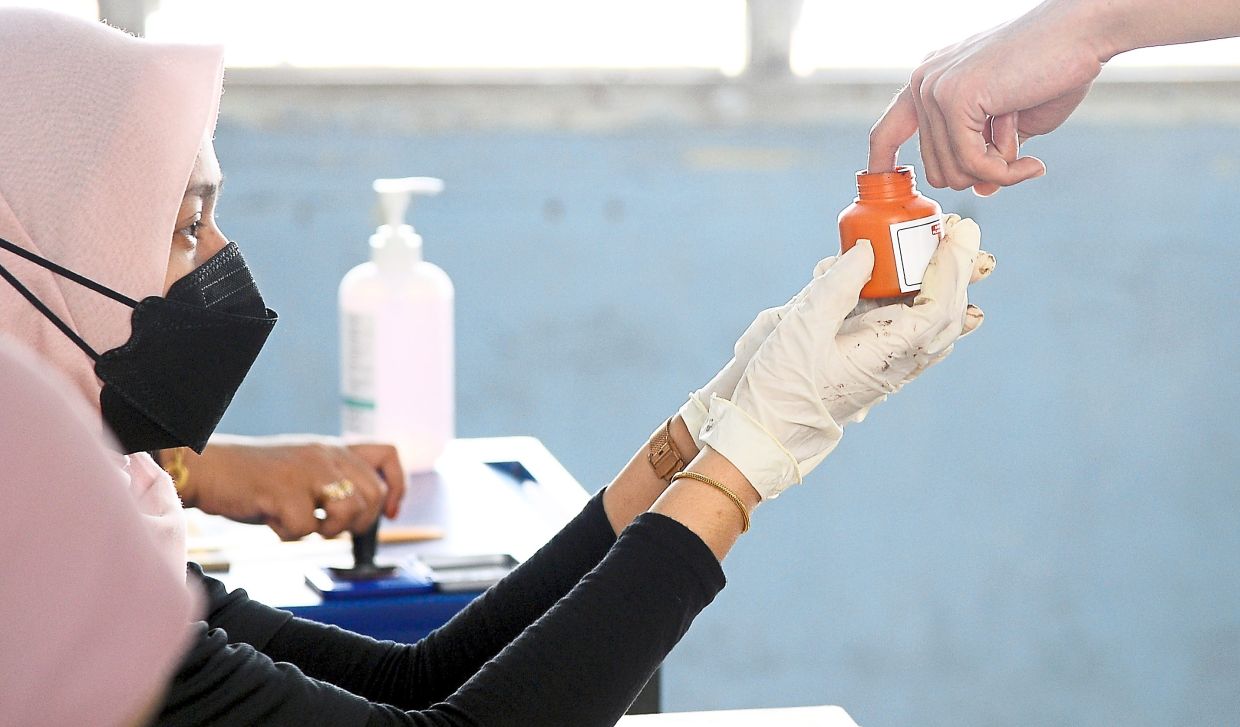
Having a general election soon can be the way out of the country’s political and economic conundrum, says the writer. – AZHAR MAHFOF/The Star
For economic reasons and the sake of political stability, Malaysia needs to head to the polls soon.
IF there’s one thing that Malaysia needs to do soon, now that the Johor state election is over, it’s to call for the general election – once the Memorandum of Understanding between the Government and Opposition expires in July.
After the huge amount spent for these state elections, don’t forget we have to spend it again when the GE is called to elect Members of Parliament for these states.
The Johor polls, which concluded last night, cost taxpayers over RM100mil. State polls since the last general election in 2018 have cost the country an eye-watering RM420mil.
Three state elections have seen RM130mil spent in Sabah, RM45mil in Melaka and RM149mil in Sarawak. Elections have progressively become more expensive because everything is costlier these days, and the Election Commission, which handles the polls, isn’t spared this economic conundrum.
The necessary items to comply with Covid-19 SOPs constitute additional costs.
We can’t have more state polls after Johor due to political reasons. It needs to stop.
The only way out is to have GE15 after July. There’s no use trying to avoid it, and the reasons given by those who don’t want it are far from convincing.
The MOU has served its purpose in keeping the federal government intact when Covid-19 was at its peak because the collapse of a federal government with no Prime Minister would have been disastrous.
The Rulers made it clear at that point, in no uncertain terms, that Malaysia could not afford excessive politicking.
But much has changed since the historic MOU – to strengthen political stability amid the pandemic – was inked last September for a bipartisan cooperation.
The MOU covered the Covid-19 plan, administrative transformation, parliamentary reform, judiciary independence, Malaysia Agreement 1963 and the setting up of a steering committee.
But the reality today is, the federal government, comprising the Barisan Nasional and Perikatan Nasional as the core coalitions, no longer functions as a unit.
The political marriage has broken down. The feuding couple is bickering openly and bad mouthing one another, and in state polls, they are contesting against each other.
The Muafakat Nasional, formed between Umno and PAS when Pakatan Harapan came into power in 2018, is as good as over. It was devised purportedly to unite the Muslim community for electoral purposes, but it has run its course.
Umno no longer sees a need for its alliance with PAS as it continues its winning streak and is now even eyeing PAS’ state and national level seats.
PAS, with a mere 18 of the 222 parliamentary seats, certainly seems to have enjoyed tremendous clout and holds powerful posts because it can cause the downfall of the federal government.
Has PAS president Tan Sri Hadi Abdul Awang, who is the special envoy to the Middle East, helped us secure investments worth billions of ringgit like Indonesia did with US$32.7bil (RM137bil) from the United Arab Emirates?
Yes, of course. It’s easy to forget he met the Taliban in Doha and helped provide a link to the Malaysian government. Thank you, a job well done then.
But seriously, the longer we hold back on the general election, the greater the financial impact on Malaysia.
No investors would put money in Malaysia if they’re unsure of who will helm the country in the long term.
The continuous mudslinging by politicians, including those in the Federal Government, is hardly inspiring to anyone wanting to invest here.
Malaysia is sending the wrong messages to the world, as if the 1MDB scandal hasn’t already made us the butt of jokes. Let’s be brutally honest – we are viewed as a corrupt country.
Our politicians spend an inordinate amount of time making silly statements, which are reported worldwide and earn us unflattering headlines.
Why would anyone advise husbands to beat their wives “gently” to discipline them, for example?
And why even bother making a statement like Singapore would be more developed if it were led by Umno. That was totally unnecessary.
Of course, we have a wellspring of such foot-in-the-mouth remarks by our politicians.
But a strong government is necessary, and for that matter, a Prime Minister who has an ironclad mandate. To complicate matters, for the first time, we have a PM who is not the boss of his own political party.
As international borders reopen, investors would want to have a final decision, and that means visiting Malaysia – and other options – personally to see the country and talk to the stakeholders, and possibly even the ministers in power, to get assurances.
We have a window period, which unfortunately, is fast diminishing. The clock is ticking away ominously.
Malaysia remains the only country in Asean where investors are continually in the dark about its political direction. We used to have the edge of a strong political leadership and stability.
Last week, DAP organising secretary Anthony Loke and Pejuang president Mukhriz Mahathir both expressed reservations about a general election being held soon.
Mukhriz said the current Parliament should run its full term until May 2023, while Loke wants the MOU to be extended, citing the Covid-19 pandemic and proposed an MOU 2.0, but only after the anti-hopping law is passed.
However, Covid-19 has been declared endemic and, whether we like it or not, the virus won’t go away.
We must live with it and even if the MPs serve the full term, infections will still be present.
The impression given is that the Opposition is reluctant to face a general election because its performance in the past state elections have been dismal.
The big question isn’t whether the GE would be held after July or in 2023, but whether we will end up with another weak government and multiple partners with a lame duck PM.





